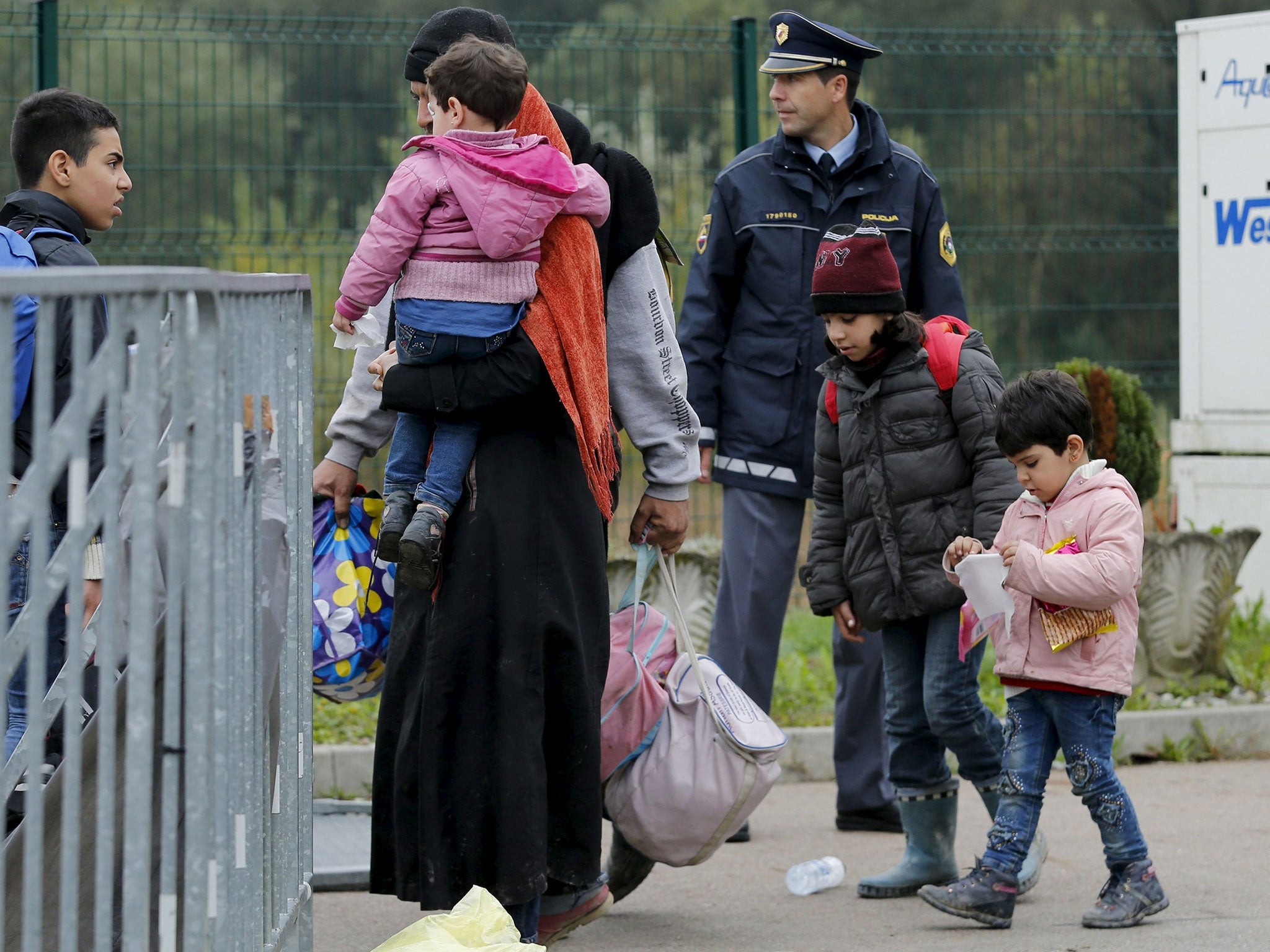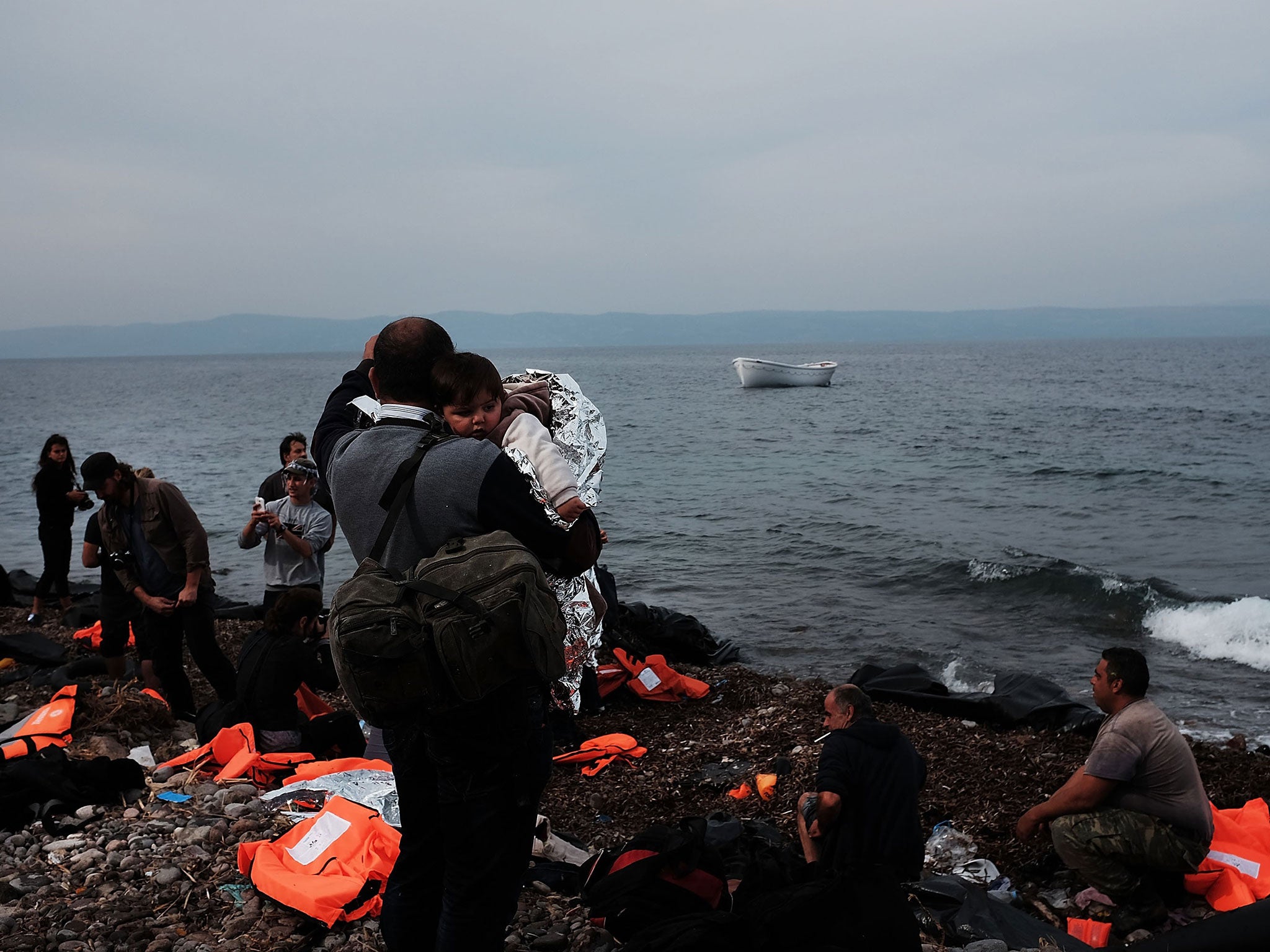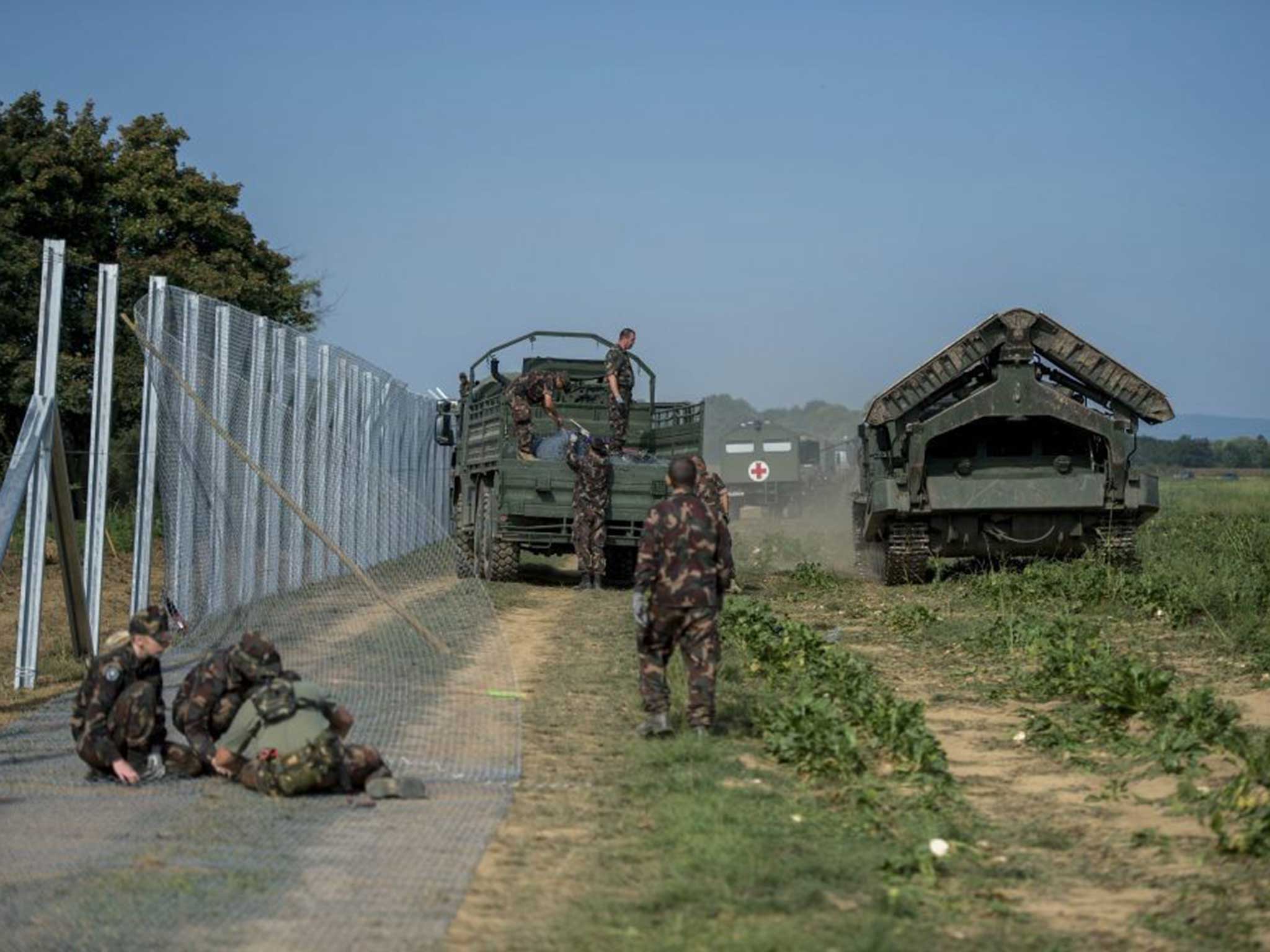Refugee crisis: First buses arrive in Slovenia as women and children drown trying to reach Greek islands
Hungary has completed its fence along the Croatian border, forcing refugees to divert

Your support helps us to tell the story
From reproductive rights to climate change to Big Tech, The Independent is on the ground when the story is developing. Whether it's investigating the financials of Elon Musk's pro-Trump PAC or producing our latest documentary, 'The A Word', which shines a light on the American women fighting for reproductive rights, we know how important it is to parse out the facts from the messaging.
At such a critical moment in US history, we need reporters on the ground. Your donation allows us to keep sending journalists to speak to both sides of the story.
The Independent is trusted by Americans across the entire political spectrum. And unlike many other quality news outlets, we choose not to lock Americans out of our reporting and analysis with paywalls. We believe quality journalism should be available to everyone, paid for by those who can afford it.
Your support makes all the difference.The first groups of refugees have reached Slovenia as they attempt to divert around Hungary’s sealed border on their journey to western Europe.
Hundreds crossed from Croatia in buses on Saturday morning, as coast guards in Turkey and Greece announced the deaths of more than a dozen refugees, including women and children, in two disasters.
A dozen people drowned when a boat sank near the Turkish coast while trying to reach Lesbos, and a dinghy capsized off the Aegean island of Kalymnos, killing a woman and three children.

Another child was missing, the Greek coast guard said after rescuing 13 people.
Thousands of refugees - mostly fleeing war-torn Syria, Afghanistan and Iraq – are still attempting to cross the Aegean Sea every day, despite worsening weather conditions making the voyage from Turkey to Greek islands ever more dangerous.
Many of those who make it to mainland Greece start the long journey on the Western Balkans route through countries including Macedonia and Serbia to reach western Europe.
Hungary was the main point of entry to the passport-free Schengen Area but a crackdown, including a razorwire fence along its borders with Serbia and Croatia, has forced refugees to divert.
The government has defended its measures by saying it is enforcing EU laws to stop mainly Muslim migrants threatening, it says, the prosperity, security and “Christian values” of Europe.
Its fence along the Croatian border was completed two days ago and the first groups of migrants reached neigbouring Slovenia this morning.

People have so far been passing through the country in smaller numbers than its neighbours but figures are expected to spike now alternative routes have been shut down.
Slovenian police said five buses carrying about 300 migrants arrived at a checkpoint in Petisovci and will be transferred to a migrant centre near the border with Austria, after they complete registration.
Most refugees are expected to move on to Austria, Germany and other more prosperous countries.
Slovenia, which has a population of two million, has said it wants to limit the number of people entering from Croatia to 8,000 a day, and has suspended normal train traffic crossing the border while boosting patrols.
Meanwhile, 43 more buses packed with refugees were stacked up at Serbia's western border with Croatia in the village of Berkasovo, after queuing through the night.
Kolinda Grabar Kitarovic, the Croatian President, has demanded strict controls and said authorities should allow in only those who are certain to leave the country, prompting fears that thousands of migrants could get stuck if Slovenia slows down the flow.
Hungary has also temporarily reinstated its border controls with Slovenia in case people attempt to cross there rather than going straight to Austria.
The German Chancellor, Angela Merkel, is due to hold talks with Turkish officials tomorrow on a controversial plan that would offer Ankara concessions, including increased aid and relaxed visa rules, in exchange for stemming the flow of migrants into EU countries.
Amnesty International has called on leaders to put refugees’ rights above border controls and “offer safe and legal routes” into Europe.
“A deal premised on keeping refugees in Turkey fundamentally ignores both the challenges they face there and the obvious need for the EU to offer protection,” the group said.
It came after a young man from Afghanistan was accidentally shot dead by border police in Bulgaria when he was caught travelling through the country with an undocumented group of refugees.
The UN's refugee agency (UNHCR) condemned the use of force on Thursday night and said it was “deeply shocked”.
“We call on the Bulgarian authorities to conduct an immediate, transparent and independent investigation,” said spokesperson Boris Cheshirkov. “Seeking asylum is a universal human right and not a crime.”
Additional reporting by AP
Join our commenting forum
Join thought-provoking conversations, follow other Independent readers and see their replies
Comments